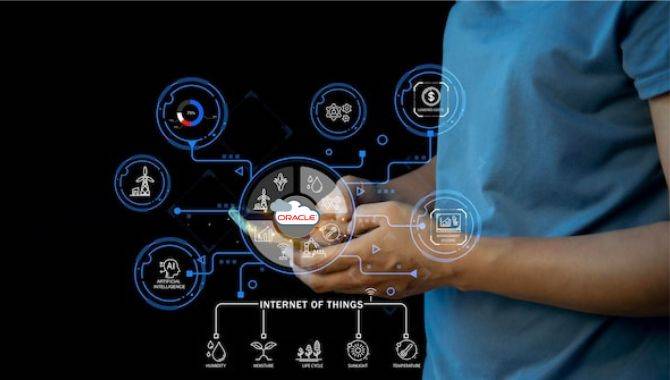Menu
Over the years, the healthcare industry has witnessed a significant transformation, thanks to advancements in technology. One such technological revolution that has the potential to revolutionize healthcare is the integration of Oracle Cloud Infrastructure (OCI) with the Internet of Things (IoT). This integration offers numerous benefits, including improved patient care, enhanced operational efficiency, and better resource management.

One of the primary applications of OCI and IoT in healthcare is remote patient monitoring. IoT devices, such as wearables and sensors, can collect real-time health data, such as heart rate, blood pressure, and glucose levels, from patients in their homes. This data is then transmitted to OCI, where it can be analyzed in real-time. Healthcare providers can use this information to monitor patients’ health status remotely and intervene promptly if any anomalies are detected. This remote monitoring capability can lead to early detection of health issues, reduced hospital readmissions, and improved patient outcomes.
Another area where OCI and IoT are making a significant impact is in the maintenance of medical equipment. IoT sensors can be installed on medical devices to monitor their performance in real time. These sensors can detect potential issues before they escalate into major problems, allowing healthcare providers to perform preventive maintenance. By ensuring that medical equipment is always in optimal condition, healthcare providers can minimize downtime, reduce costs, and improve the quality of patient care.
OCI and IoT can also enhance supply chain management in healthcare. IoT sensors can be used to track the location and condition of medical supplies, such as medications, vaccines, and medical devices, in real time. This information can be integrated into OCI, allowing healthcare providers to monitor the supply chain and ensure that critical supplies are always available when needed. This enhanced visibility into the supply chain can help reduce waste, improve inventory management, and ensure timely delivery of supplies to healthcare facilities.
OCI and IoT can also improve patient engagement and adherence to treatment plans. IoT devices can be used to remind patients to take their medications, perform exercises, or follow other aspects of their treatment plan. These devices can also collect data on patients’ adherence and progress, which can be shared with healthcare providers to tailor treatment plans accordingly. By keeping patients engaged and informed, OCI and IoT can improve patient outcomes and satisfaction.
While OCI and IoT offer numerous benefits to the healthcare industry, they also raise concerns about data security and privacy. Healthcare data is highly sensitive and must be protected from unauthorized access and breaches. Healthcare providers must implement robust security measures, such as encryption, access controls, and regular audits, to ensure that patient data is secure. Additionally, healthcare providers must comply with relevant regulations, such as HIPAA, to protect patient privacy and confidentiality
As a leading provider of innovative technology solutions, Ralan Tech is at the forefront of this transformation. By leveraging OCI and IoT, Ralan Tech is empowering healthcare providers to deliver better care, improve patient outcomes, and drive efficiencies in healthcare operations.
Overall, the integration of OCI and IoT in healthcare represents a significant step forward in the evolution of the industry. With continued innovation and collaboration, OCI and IoT have the potential to revolutionize healthcare delivery and improve the lives of patients worldwide.
The integration of Oracle Cloud Infrastructure and the Internet of Things is transforming the healthcare industry by improving patient care, enhancing operational efficiency, and ensuring better resource management. Remote patient monitoring, predictive maintenance of medical equipment, enhanced supply chain management, and improved patient engagement are just a few examples of how OCI and IoT are revolutionizing healthcare.
However, healthcare providers must also address concerns about data security and privacy to fully realize the benefits of these technologies. By leveraging OCI and IoT effectively, the healthcare industry can provide better care to patients and improve overall health outcomes.
Copyright 2024 | All rights reserved.
Disclaimer: “All trademarks used are the property of their respective owners, and their use here does not imply endorsement.”